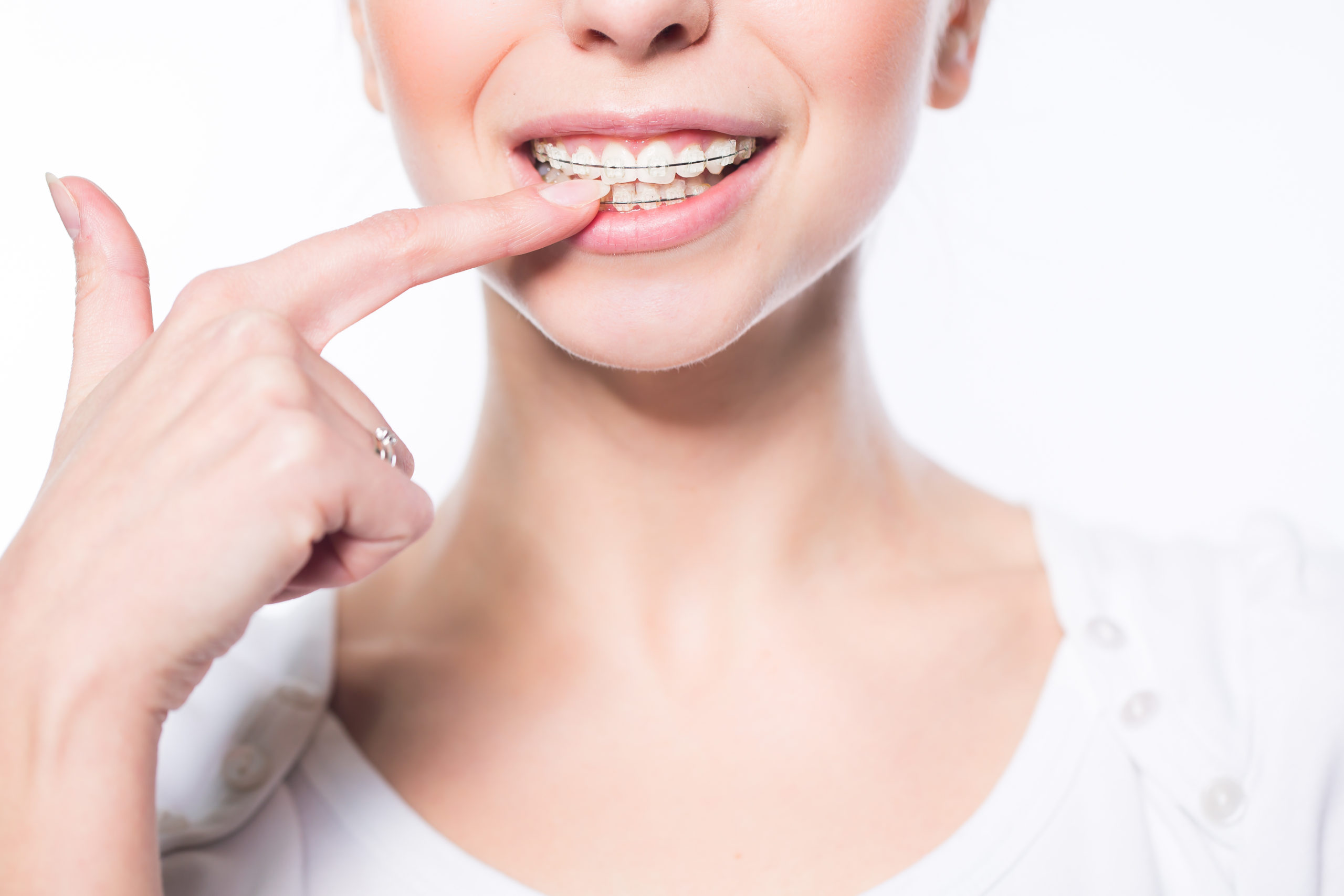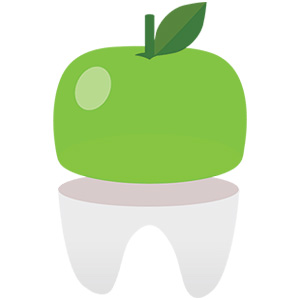
As a certified specialist in orthodontics, my area of expertise is in preventing, diagnosing and treating issues with the positioning or alignment of the teeth and jaws, technically called malocclusion. One of the most common types of malocclusion my team and I see is an excessive overbite, or deep bite. Thankfully, as many of our Brooklyn Invisalign® and braces patients can attest, at Fresh Orthodontics, we can create a personalized treatment plan to correct an overbite and help you achieve a smile you love.
In this post, I’ll be covering:
- What is an overbite?
- The causes of an overbite
- Why a deep bite needs to be treated
- Whether we can use braces or Invisalign for overbite correction
What is an Overbite (Deep Bite)?
First things first, what is an overbite? Overbite refers to how much the upper front teeth vertically overlap the bottom teeth when the back teeth are closed. While almost everyone has some degree of an overbite, when the degree of overlap is too large, it’s considered a concern and treatment is needed. An excessive overbite is called a deep bite. In extreme instances, the top front teeth overlap the bottom teeth entirely, causing the patient’s bottom teeth to bite into the roof of the mouth.
The opposite can occur as well. When a patient has a lack of an overbite, it’s referred to as an open bite. With an open bite, the top and bottom teeth don’t come together at all.
An excessive overbite may be related to the position of the teeth, called a dental overbite. When the teeth are shifted into the proper position, the overbite will disappear. Overbites can also be skeletal in nature, meaning the overbite is due to the size or shape of the jaw, most commonly a small lower jaw.
Overbite vs. Overjet
The terms overbite and overjet are often used interchangeably. However, there is a difference between the two. Overbite is the term referring to the vertical overlap of the front teeth. Overjet, on the other hand, describes the horizontal distance between the upper and lower front teeth. Overjet teeth protrude or flare out and patients often call them “buck teeth.”
Patients with an overbite can also have overjet teeth. Additionally, there are different classifications and divisions. However, for the purpose of this post, I’ll be discussing excessive overbites, or deep bites, in general and not going into the nuances.
What Causes an Overbite?
An excessive overbite, or deep bite, can be caused by a number of different things, including:
- Genetics – Most deep bites are genetic and couldn’t have been prevented. They’re related to the size and/or shape of the teeth or jaw. Many times, the upper and lower jaw grow and develop at different rates, leaving a patient with a shorter lower jaw that creates an overlap.
- Oral Habits – Harmful oral habits like aggressive or prolonged thumb sucking can worsen an overbite.
- Teeth Grinding and Clenching – Patients who clench or grind their teeth (bruxism), often have super strong biting muscles, which may deepen the bite.
- Aging – As we get older, our bite naturally deepens. This means even a mild overbite will worsen with age. If you had orthodontic treatment in the past, but forget to wear your retainer, your excessive overbite could reappear.
- Missing Lower Tooth – When back lower teeth are missing, whether from injury or decay, this creates a situation similar to having a short lower jaw and can lead to a deep bite.
Why a Deep Bite Needs to Treated?
Having an excessive overbite can lead to a host of complications if not treated, such as:
- Increased Risk of Tooth Decay and Gum Disease – When you have an aligned bite and straight teeth, it’s easier to brush and floss effectively, lowering the risk of tooth decay and gum disease. Aside from that, patients with a deep bite often experience excessive wear of the enamel. The enamel is a protective coating and as it breaks down, the teeth are more susceptible to cavities. If the lower teeth touch the gums behind the upper teeth when you close your mouth, gum recession can also occur.
- Uneven Wear of the Enamel – As some teeth wear down due to how the upper and lower arch come together when you chew or bite, it impacts the appearance of your smile and, as mentioned above, your oral health.
- Breathing Disorders – In cases of a severe overbite where the lower jaw is too small and/or set back too far, the airway can be restricted, which is why some types of overbites are tied to obstructive sleep apnea. People with skeletal overbites are also more prone to snoring and mouth breathing.
- Impaired Chewing – A moderate or severe overbite may impact chewing and make it harder to eat some foods.
- Issues With Speech – Malocclusion can affect speech. Air has to flow a certain way in the mouth to produce some sounds properly, while others rely on tongue contact or positioning. When a patient has a large overbite, particularly if they also have crowding, it can interfere with their ability to clearly produce sibilants and tongue-tip sounds.
- Jaw or TMJ Pain – Another overbite complication is jaw pain and/or a temporomandibular joint (TMJ) disorder. Because the bite is off, it puts undue pressure on the TMJ and chewing muscles, leading to dysfunction, pain, headaches, and even earaches.
- Poor Self-Esteem – An overbite, or deep bite, creates a number of functional issues, but it also has a negative effect on the appearance of a patient’s smile and their facial structure. They might feel self-conscious and it can lead to teasing. The cosmetic benefits of orthodontic treatment shouldn’t be overlooked, because the confidence that comes from being proud of your smile is life-changing.
Can You Use Braces or Invisalign for Overbite Correction?
When it comes to how to fix an overbite, it really depends on whether the overbite is dental or skeletal and its severity. At your initial consultation, my team will take diagnostic records, and I’ll perform a thorough oral exam. This will allow me to develop an accurate diagnosis and a customized treatment plan.
Can Invisalign fix an overbite? What about braces? Yes, braces and Invisalign can fix an overbite, or deep bite. I’m often able to use braces or Invisalign for an overbite that’s related to tooth positioning on their own. If the jaws don’t come together properly, however, I may have to pair your appliance with auxiliaries, such as rubber bands and Invisalign attachments.
Invisalign attachments are tooth-colored buttons that are bonded to the teeth. The attachments give the aligners more leverage in order to achieve complex tooth movements. Rubber bands that connect the upper and lower arch together can also be used with braces or Invisalign. The rubber bands provide connective forces to align the bite, while your appliance straightens the teeth.
If a deep bite is skeletal and moderate to severe, early intervention could be key. The American Association of Orthodontists recommends kids have their first orthodontic evaluation by the age of 7. At this time, emerging dental and facial irregularities, such as an excessive overbite, can be identified. If needed, I can intervene with phase 1 orthodontic treatment and use certain appliances to guide jaw growth while the patient is still growing. This can go a long way in helping kids avoid jaw surgery or extractions down the road and will make later treatment with braces or Invisalign Teen quicker, easier, and more effective.
That’s not to say extreme measures will be necessary when creating a plan for how to fix an overbite in an adult. While in rare cases, surgical orthodontics, where we combine corrective jaw surgery with orthodontic treatment, could be needed, most of the time, I can get excellent results without surgery. Thanks to advances in orthodontic technology like computerized treatment planning, as well as improvements in treatments and materials, I can help patients of all ages get a functional bite and a beautiful smile.
If you want to learn more about your options for getting braces or Invisalign for an overbite, schedule a complimentary consultation at Fresh Orthodontics today! My team and I will make sure the process is fun and positive and that you get outstanding results. Want to see our work in action? Check out some of the before and after overbite photos from our Brooklyn Invisalign and braces patients.













